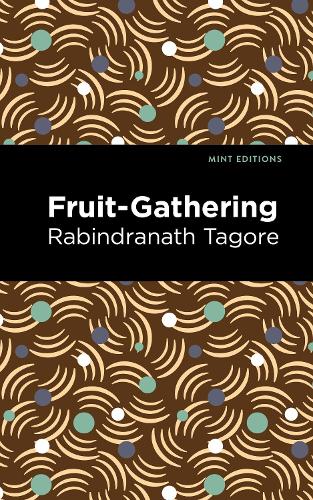
Fruit-Gathering
(Hardback)
Publishing Details
Fruit-Gathering
By (Author) Rabindranath Tagore
Contributions by Mint Editions
West Margin Press
West Margin Press
24th May 2022
United States
Classifications
Physical Properties
Hardback
102
Width 127mm, Height 203mm
Description
Fruit-Gathering (1916) is a collection of poems by Rabindranath Tagore. Translated into English by Tagore after he received the 1913 Nobel Prize in Literature, Fruit-Gathering is a powerful collection of prose poems by a master of Indian literature. Bid me and I shall gather my fruits to bring them in full baskets into your courtyard, though some are lost and some not ripe. For the season grows heavy with its fulness, and there is a plaintive shepherds pipe in the shade. Bid me and I shall set sail on the river. In these poems of love, nature, faith, and dreams, Tagore is at the height of his creative powers. In one passage, he is a lovesick youth, in another, an illiterate man with a letter he cannot read. He longs to be a poet of the night, a singer of fathomless silence. Filled with visions of saints and kings, celebrations of beauty, and powerful evocations of the natural world, Fruit-Gathering is one of his most original works. This edition of Rabindranath Tagores Fruit-Gathering is a classic of Indian literature reimagined for modern readers.
Since our inception in 2020, Mint Editions has kept sustainability and innovation at the forefront of our mission. Each and every Mint Edition title gets a fresh, professionally typeset manuscript and a dazzling new cover, all while maintaining the integrity of the original book.
With thousands of titles in our collection, we aim to spotlight diverse public domain works to help them find modern audiences. Mint Editions celebrates a breadth of literary works, curated from both canonical and overlooked classics from writers around the globe.
Author Bio
Rabindranath Tagore (1861-1941) was an Indian poet, composer, philosopher, and painter from Bengal. Born to a prominent Brahmo Samaj family, Tagore was raised mostly by servants following his mothers untimely death. His father, a leading philosopher and reformer, hosted countless artists and intellectuals at the family mansion in Calcutta, introducing his children to poets, philosophers, and musicians from a young age. Tagore avoided conventional education, instead reading voraciously and studying astronomy, science, Sanskrit, and classical Indian poetry. As a teenager, he began publishing poems and short stories in Bengali and Maithili. Following his fathers wish for him to become a barrister, Tagore read law for a brief period at University College London, where he soon turned to studying the works of Shakespeare and Thomas Browne. In 1883, Tagore returned to India to marry and manage his ancestral estates. During this time, Tagore published his Manasi (1890) poems and met the folk poet Gagan Harkara, with whom he would work to compose popular songs. In 1901, having written countless poems, plays, and short stories, Tagore founded an ashram, but his work as a spiritual leader was tragically disrupted by the deaths of his wife and two of their children, followed by his fathers death in 1905. In 1913, Tagore was awarded the Nobel Prize in Literature, making him the first lyricist and non-European to be awarded the distinction. Over the next several decades, Tagore wrote his influential novel The Home and the World (1916), toured dozens of countries, and advocated on behalf of Dalits and other oppressed peoples.
